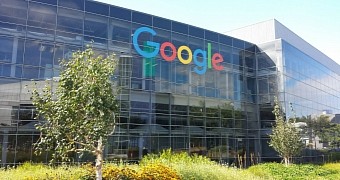Google is taking a hard stance against President Trump’s immigration ban, with thousands of employees deciding to march out in protest, alongside CEO Sundar Pichai and cofounder Sergey Brin, both immigrants.
About 2,000 employees from all over the world protested the ban, which isn’t surprising since nearly 200 Googlers were affected by the ban, pushing Pichai to recall them to Mountain View. It is unclear just how many of them managed to make it back.
Sundar Pichai and Sergey Brin both addressed the crowds of employees that gathered outside the San Francisco offices on Monday. Pichai told employees that the fight would continue, indicating that Google will keep doing whatever it can to combat the immigration ban and everything else that might contravene the company’s goals from Trump’s plans.
Google CEO sundar pichai at rally at Googleplex "the fight will continue" pic.twitter.com/cZOfn9FiGY — Daisuke Wakabayashi (@daiwaka) January 30, 2017
United front
Google employees have been sharing pictures from the rally, using the hashtag #GooglersUnite. It’s pretty clear the rally was supported by the company, especially given the presence of the CEO, cofounder, and many other leaders inside Google.
Of course, it shouldn’t come as a surprise. Sundar Pichai was born and raised in India before becoming one of the most powerful men at Google. Brin too came to the USA back in the late 70s.
“It’s a debate about fundamental values,” Sergey Brin told the crowds, according to one employee who tweeted about the speech.
Google has set up a $4 million crisis fund to fight the immigration ban. $2 million will come from the company and another $2 million from employee donations, plus whatever the company’s leaders will donate personally. The money will go to four organizations - The American Civil Liberties Union (ACLU), Immigrant Legal Resource Center, International Rescue Committee, and UNHCR. They all promised to help immigrants and to take the fight against Trump’s executive order to the courts.
Google had been hoping that once Trump was named president they could have a conversation about relaxing the immigration laws. In particular, they were interested in the H-1B “non-immigrant” visa which would help them, and other US companies, temporarily employ foreign workers more easily.
#GooglersUnite rally is still growing. I think we’re up to about 1.5 million Googlers in the crowd! pic.twitter.com/kEttLZJo26 — Mike West (@mikewest) January 30, 2017

 14 DAY TRIAL //
14 DAY TRIAL //